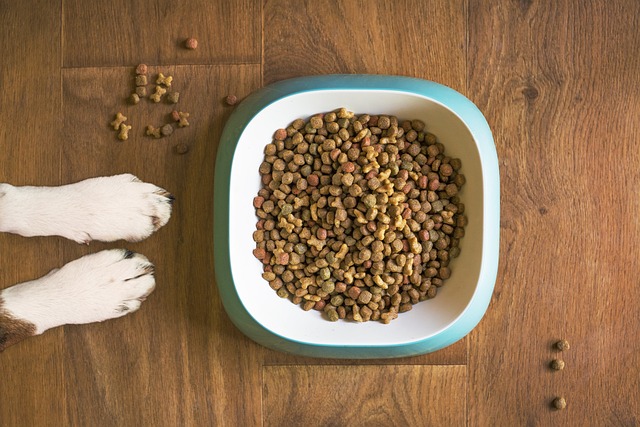
Is Your Canine’s Diet Sabotaging Their Health?
At CaninePetProducts.com, we understand the profound bond that exists between you and your furry friend. Dogs are more than just pets; they are cherished members of our families. And just like any family member, their health and well-being are of paramount importance. One critical aspect of your dog’s health that often goes overlooked is their diet. Yes, what your canine companion eats plays a significant role in their overall health and vitality.
In this article, we will delve deep into the world of canine nutrition, shedding light on the vital factors that can impact your dog’s health. We will explore the common dietary mistakes pet owners make, the importance of a balanced diet, and how you can ensure your four-legged friend receives the best possible nutrition.
Understanding Canine Nutrition
To truly appreciate the significance of your dog’s diet, it’s essential to understand their nutritional needs. Just like humans, dogs require a well-balanced diet to thrive. This means a combination of proteins, carbohydrates, fats, vitamins, and minerals in the right proportions. Let’s break down these essential components:
1. Proteins Proteins are the building blocks of life for dogs. They play a pivotal role in muscle development, tissue repair, and overall growth. High-quality protein sources like lean meats, fish, and eggs should be a staple in your dog’s diet.
2. Carbohydrates Carbohydrates provide the necessary energy for your dog’s daily activities. Whole grains, vegetables, and legumes are excellent sources of carbohydrates. They also contribute to a healthy digestive system.
3. Fats Healthy fats are crucial for maintaining your dog’s skin and coat, as well as supporting various bodily functions. Incorporate sources like fish oil and flaxseed oil into their diet for optimal fat intake.
4. Vitamins and Minerals Vitamins and minerals are essential for overall health. They aid in everything from bone development to immune system support. Ensure your dog’s diet includes a variety of fruits and vegetables to cover these nutritional needs.
Common Dietary Mistakes
Now that we’ve covered the basics of canine nutrition, let’s address some common dietary mistakes that pet owners often make:
1. Feeding Inappropriate Human Food While it can be tempting to share your plate with your dog, many human foods are toxic to them. Avoid feeding your dog chocolate, grapes, onions, garlic, and anything with high salt content.
2. Overfeeding Maintaining a healthy weight is crucial for your dog’s well-being. Overfeeding can lead to obesity, which in turn can result in a myriad of health issues. Follow recommended portion sizes and consult your veterinarian for guidance.
3. Ignoring Allergies Dogs, like humans, can have food allergies. If you notice symptoms such as itching, gastrointestinal upset, or ear infections, it’s essential to investigate your dog’s diet and eliminate potential allergens.
4. Lack of Fresh Water Proper hydration is key to your dog’s health. Always ensure they have access to clean, fresh water. Dehydration can lead to serious health complications.
The Importance of a Balanced Diet
A balanced diet is the cornerstone of your dog’s health. It ensures they receive the right nutrients in the right amounts. But what does a balanced diet do for your canine companion?
1. Supports Optimal Growth Puppies require a diet that supports their rapid growth and development. A balanced diet with the right mix of nutrients is crucial during this stage.
2. Promotes a Healthy Weight Maintaining a healthy weight reduces the risk of joint problems, heart disease, and diabetes. A balanced diet can help your dog stay trim and fit.
3. Enhances Skin and Coat Health A diet rich in essential fatty acids can result in a lustrous coat and healthy skin. Say goodbye to dry, itchy skin and hello to a shiny, happy pup.
4. Boosts Immunity A well-nourished dog is better equipped to fend off illnesses. Proper nutrition strengthens their immune system, helping them stay active and playful.
How to Ensure Your Dog’s Diet Is on Point
Now that we’ve highlighted the significance of a balanced diet for your canine companion, let’s explore some practical steps to ensure their nutrition is top-notch:
1. Consult Your Veterinarian Your veterinarian is your best source of guidance when it comes to your dog’s diet. They can recommend specific dietary plans based on your dog’s age, breed, and health status.
2. Choose High-Quality Dog Food Invest in premium dog food brands that prioritize quality ingredients. Look for options that list a high-quality protein source as the primary ingredient.
3. Read Labels Carefully Always read the labels on dog food packages. Avoid products with excessive fillers, additives, or artificial preservatives.
4. Monitor Your Dog’s Weight Regularly monitor your dog’s weight and adjust their food intake accordingly. Avoid overfeeding, as excess weight can lead to health issues.
5. Rotate Protein Sources Variety is the spice of life, and that applies to your dog’s diet too. Rotate protein sources to ensure they receive a wide range of nutrients.
In conclusion, your canine companion’s diet plays a pivotal role in their health and well-being. By providing a balanced diet, avoiding common dietary mistakes, and consulting your veterinarian, you can ensure that your beloved furry friend enjoys a long, healthy, and happy life.
